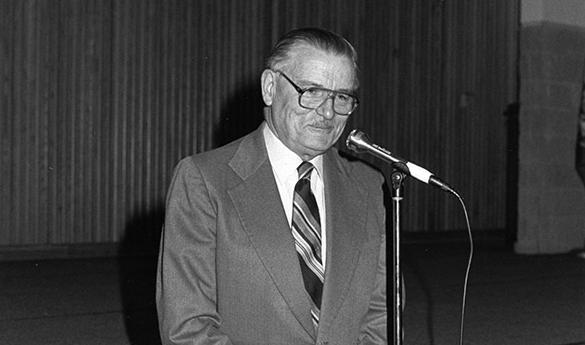Nobel-winning economics professor passes away
On Jan. 9, James Buchanan, a Mason professor emeritus and Nobel Prize winning economist, passed away at the age of 93 in Blacksburg, Virginia, where he lived.
Buchanan was the founder of Mason's Center of Study of Public Choice, which he founded at Virginia Tech in 1969 and relocated to Mason in 1983. He received the Nobel Prize in 1986 for his work on Public Choice theory. After retiring in 1999, Buchanan continued to serve as advisory general director for Center of Study of Public Choice until his death.
“I know the entire university community joins me in mourning the loss of Dr. James M. Buchanan,” President Ángel Cabrera said in a university news release. “As Mason’s—and Virginia’s—first Nobel laureate for economics in 1986, Professor Buchanan was transformational, not only for our Department of Economics, but for putting our young university on the national and international map.”
Buchanan's primary work used economic principles to understand the behaviors of voters, politicians and other political agents. Buchanan's findings on this "political economy" portrayed political agents as self-interested individuals. According to an article in the Economist, Buchanan called this view "politics without romance."
Buchanan believed that these people’s behavior could be explained by the rules that they were constrained by. He called this aspect of his research "constitutional economics."
According to Alexander Salter, a Mason graduate student and current instructor of microeconomics, Buchanan's conclusions were groundbreaking.
"By framing the discussion in terms of rules, Buchanan realized that all the things that economists talk about...depend on the underlying institutions of society, and those in turn depend on the rules that people use to govern their collective action," Salter said. "You can't really understand a political society or an economic society without paying attention to the rules that govern it, and Buchanan turned our attention back to that.
"Buchanan deserves all the credit in the world for refocusing our tradition on a true political economy rather than just a theory of economics that didn't have any way of talking about political institutions."
The university is planning a memorial for James Buchanan later this year.

